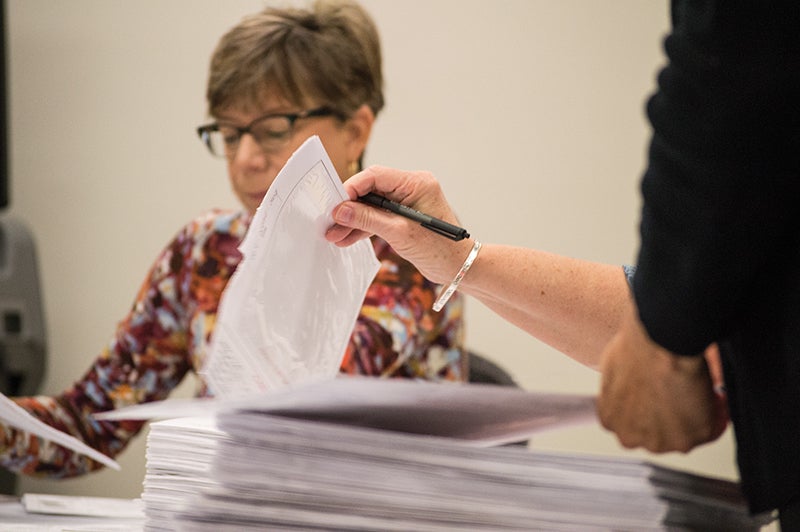Ferrel Guillory: Post-election lessons for students — and all of us
Published 11:56 pm Tuesday, December 27, 2016

- Board of Elections staff in 2016 tally votes. Salisbury Post file photo
The fall semester drew to a close before my 18 inquisitive, sometimes-feisty students in a first-year seminar had a chance to grapple with the post-election power-struggles in North Carolina.
Most of these UNC-Chapel Hill students, who were in high school less than a year ago, cast their first votes in the uncommonly coarse and contentious 2016 presidential election. Some voted for Donald Trump, some for Hillary Clinton, and they thought hard about how to make informed decisions.
For students, the national campaign served as a vehicle for confronting sexism and racism, fact and error in what candidates say, false equivalence and fake-news in the media. Since election day, disputes over vote-counts, the Republican-initiated legislation to curb a Democratic governor’s power, and an attempt to repeal HB 2 — all episodes that put North Carolina back into national attention — would have had the students raising questions, debating, and learning fresh lessons.
Several students read books on the George W. Bush vs. Al Gore Jr. contest in 2000, when the U.S. Supreme Court halted further vote recounts in Florida and effectively handed the presidency to Bush. With that historical context, the students would have been interested in the efforts of Gov. Pat McCrory to raise doubts about the results in Durham and other counties in his unsuccessful race against Democratic Gov.-elect Roy Cooper.
The McCrory forces failed to show rampant voting irregularities. In the post-election counting, Cooper’s lead grew to 10,000. In a system that relies on volunteers in precincts across a sprawling state, election boards with GOP majorities did their jobs, conducted a sound election and withstood pressure from a Republican governor.
Students learned to be cautious about declaring a political campaign or a legislative development “unprecedented.’’ And I would have told them my recollection of the 1973 General Assembly, my first experience with the North Carolina legislature.
In 1972, Republican Jesse Helms won the first of his five terms in the U.S. Senate, and Jim Holshouser became the state’s first GOP governor in seven decades. Democratic legislators, stunned by the Republican victories, introduced measures — widely derided as “stripping bills’’ — to diminish the power of the chief executive. Yes, what Republicans did in 2016 had the feel of what Democrats attempted in 1973.
Still, there were key differences. The 1973 legislation arose in a regular session of the General Assembly, not sprung in pre-inauguration special sessions as Republicans did this year. In 1973, potent stripping bills did not pass. Holshouser pushed back to protect his power. The Senate, with its presiding officer, then-Lt. Gov. Jim Hunt, a Democrat, having his eye on the governor’s office, served as a brake on the House-inspired bills. In 2016, no policymaker — not the outgoing governor, the incoming governor, or Lt. Gov. Dan Forest — served as a brake.
What’s more, the 1973 legislature went on to produce important legislation. The Republican governor and Democratic lawmakers agreed to a statewide expansion of kindergartens; they adopted a coastal area management act, as well as a land conservancy. It was as if Democrats and Republicans fought politically with their left hands, while their right hands did the work of governance.
With the contentious, partisan rhetoric of the recent special sessions, it’s difficult to imagine anything close to a replay of 1973 in 2017.
Ferrel Guillory is professor of the practice at the UNC School of Media and Journalism.

